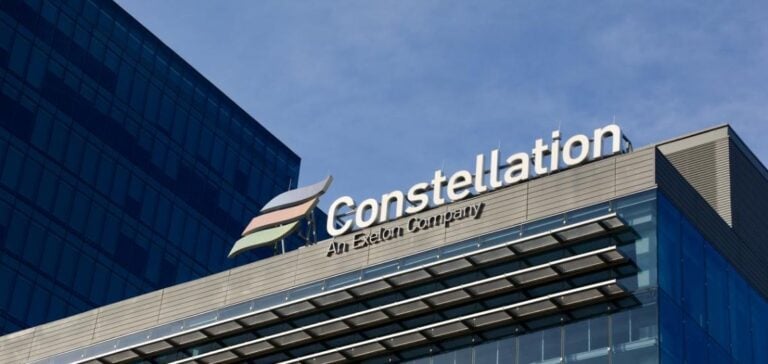U.S.-based Constellation Energy recently launched a green bond offering dedicated to the nuclear sector, based on a newly-developed green financing framework. This framework enables the company to issue green financial instruments to finance eco-responsible projects. Verification by Sustainalytics, a firm specializing in environmental, social and corporate governance (ESG) research and analysis, attests to the alignment of this framework with the 2021 Green Bonds Principles and the 2023 Green Loan Principles. These voluntary principles underpin the award of the green label to bonds issued, reinforcing investor confidence in the ecological potential of these instruments.
Constellation’s commitment to clean energy
Constellation operates 14 nuclear power plants in the United States, with a combined generating capacity of over 19,000 MWe. This nuclear green bond initiative demonstrates the company’s commitment to promoting sustainability in the energy sector. The funds generated by this green bond issue are intended to finance a variety of green projects, including nuclear power upgrades, the development of technologies for clean hydrogen production, energy storage systems, and wind repowering. These projects aim to provide carbon-free energy solutions for Constellation’s commercial customers, underlining the growing importance of nuclear power in the energy transition.
Crédit Agricole CIB’s role
Crédit Agricole CIB played a crucial role as green structuring agent in Constellation’s nuclear green bond issue. The investment bank, a subsidiary of the Crédit Agricole de France Group, contributed its financial expertise to structure this innovative offering. His involvement underlines the growing recognition of the financial sector’s role in supporting sustainable investment and the transition to cleaner energy sources. Constellation’s association with a renowned financial player such as Crédit Agricole CIB demonstrates the feasibility and attractiveness of green investments in the nuclear energy sector.
Market acceptance and future prospects
Constellation’s nuclear green bond offering met with a positive market response, illustrating a growing consensus on the value of nuclear power as a clean technology. Dan Eggers, Constellation’s Executive Vice President and CFO, emphasized the growing acceptance of nuclear power for its unrivalled reliability and positive environmental impact. This pioneering initiative in the field of nuclear green bonds confirms investors’ interest in nuclear power as a long-term, sustainable investment. It paves the way for other nuclear operators, such as Bruce Power in Canada and EDF in France, who have also issued green bonds to finance nuclear projects.
The trend towards green bonds in the nuclear sector is not limited to Constellation in the United States. Bruce Power, the first nuclear operator in the world to issue green bonds in 2021, has since completed cumulative issues of CAD 1.7 billion. In addition, Ontario Power Generation in Canada has updated its green bond framework to include eligible nuclear projects, and EDF in France has launched a green bond issue dedicated to financing its existing nuclear fleet. These international developments underline the growing recognition of nuclear energy as a pillar of the global energy transition, confirming its essential role in nations’ sustainable development strategies.






















